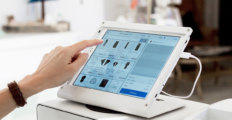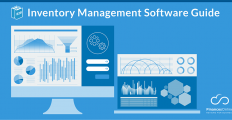A well-functioning sales system is one deciding factor for the success of a retail business. And with the world evolving fast, long gone are the days when a Point of Sale (POS) system is just a cashier machine.
Now, we need POS to help us manage customer data, track seasonal sales, and increase the overall revenue. That is why integrating Customer Relationship Management (CRM) into POS sounds like such a no-brainer.
If you are new to the idea, then this post will be the right place to start. Let’s drive more business success with POS CRM integration.

What is POS and CRM integration?
First, let’s start with a quick introduction:
- A POS system is a set of software or devices to process transactions at the location of purchase, enabling retailers to accept payments, generate receipts, manage inventory, customers, employees, and more.
- A CRM system manages customer relationships and interactions throughout the sales lifecycle, enabling retailers to track data, facilitate better marketing, and forecast sales demands.
POS and CRM integration involves linking both systems, and creating a more powerful tool to collect and analyze customer data across all sales channels. From this combination, retailers can have a unified view of customer behaviors to take effective actions.
5 benefits of a POS with CRM integration
A POS with CRM integration system brings many benefits to the business, such as:
1. Understand customers better:
With CRM integrated into POS, retailers can analyze detailed customer data to create different segments for suitable marketing approaches. Knowing your customer preferences helps you give effective product recommendations to close sales faster.
That not only wows your customers but keeps them coming back for more. Businesses that employ a data-driven strategy can drive five to eight times more ROI.
2. Facilitate quick data storage:
Your POS will collect customer data seamlessly during transactions and transfer it to your CRM software for further segmentation. Then, you can share the customer insights to your marketing and customer service teams. Worry no more about juggling between platforms just to gather enough insights for an internal meeting.
Your staff can then focus on the bigger picture and figure out how they can provide better services to customers, while the integrated system efficiently automates and stores all the data.
3. Foster loyalty:
You can use a POS with CRM integration to identify high-revenue customers, and then reward them with exclusive offers to keep them coming back. Knowing that 65% of a business’s revenue is from repeat customers, you should consider how you can take care of those frequent buyers. And not with just rewards, you can also improve the services for them with exclusive content, special groups, and personalized features.
4. Personalize marketing, product dev, and resource management:
Having an expanded view of the customer relationship allows you to create personalized marketing campaigns. You can further leverage technology by feeding CRM data into a generative AI platform (ex. chatGPT or Gemini) to generate campaign ideas fast. Then, generate your messages as varied as your customers’ preferences and user behavior differ from each other. You can even feed AI copy into an
AI detector to spot possible monotonous parts in your messages and replace them with a humanized tone.
Beyond campaigns, your CRM data will help shape your future products or resource allocation. By analyzing the purchase behaviors of customers, you can create a plan to anticipate their needs and then optimize the operation process accordingly. That’s what all businesses should prepare to go on the long road.
5. Enhance overall experience:
A great customer experience is a must nowadays, especially when big companies like Airbnb or Amazon are pushing the standards. So you need to catch up with the services of your store through data analytics. Your in-charge teams can also get instant access to the customer’s purchase history or past communication through the POS and CRM system to resolve issues faster, improving the overall experience.
Overall, POS CRM integration can streamline business operations, drive business growth, and create better long-term relationships with customers.
How to integrate POS and CRM tools?

Integrating CRM and POS systems can be approached in various ways, depending on the retailer’s specific requirements, budget, and technical capabilities. In essence, we have 3 options:
1. Point-to-point integration (cloud-based)
If you have a cloud-based CRM and POS solution, you can connect them via APIs or plug-ins. You will need to contact their support to make sure that, but cloud-based apps often have a marketplace for third-party plugins with easy integration.
Pros:
- Simple to integrate without hardware installation
- Easy to maintain
- Flexible cost with often low starting fees
- Accurate real-time data sync
Cons:
- Reliable on internet connection
- Higher integration cost with more apps
- More complicated support as you’ll need to contact two suppliers
- Simple on a small scale but more complex when the tech stack grows
Best uses:
- Small businesses that wish to connect two to three apps in their organization’s tech stack.
2. Hub and spoke integration
If you have a CRM or POS hub system, you can use a custom service from a third-party vendor (such as Zapier) for the integration process. If the hub is more advanced, you can even build new integrated features right inside the system, and then connect all of your tech stack to this single source of data.
Pros:
- Flexible for each business situation
- Tailored to the retailer’s needs, even offline or cloud
- Suitable for growth when adding more technology
Cons:
- Complex setup process
- Higher cost because of customization
- Higher maintenance fees
Best uses:
- Retailers need a platform to connect many apps or systems in the tech stack and transfer data efficiently.
- Retailers that have the budget for a platform to serve all workflows in the long run.
3. Same vendor’s solution
You can choose POS and CRM solutions from the same provider. Many companies offer a system with POS and CRM features integrated from the start, and also with many more options for inventory, marketing, design, etc. They are often an all-in-one solution to support all business needs.
Pros:
- Seamless software integration from one single vendor
- Upgradable with more features
- Higher security
Cons:
- May have compatibility issues with software from other providers
- Harder to switch to another system
Best uses:
- Medium to large retailers that want to have an all-in-one platform.
Best POS with CRM integration for retailers
1. Magestore POS
Magestore POS is a top-of-mind POS solution for retailers, allowing you to sync and centralize all data from both online and offline stores. The POS system from Magestore can integrate with any CRM solutions that you want, including:
- Salesforce
- Zoho CRM
- HubSpot CRM
- Pipedrive CRM
- Zendesk Sell
- Freshsales CRM
- SugarCRM
- Less Annoying CRM
- …
Not only that, Magestore POS is a powerful POS system with many features for retailers, such as:
- Sync all order, customer, and product data in real time
- Manage inventory, sales, customers, and employees for multiple stores
- Run omnichannel loyalty programs to attract more customers and unify customer data in one place for central management and analysis
- Work on any browser
- Create and checkout orders even without an internet connection
- Work well on various devices like iPads, Macs, Android tablets, PCs
- Transfer data easily between POS and other systems such as accounting, shipping, marketplace, etc. for efficient management
- Customize the POS to your needs with support from Magestore
- Set up flexible permission levels for different employees
- Designed for different demands of each industry: clothing POS, cannabis and vape POS, cafe shop POS, sporting store POS, outdoor store POS, etc.
If you’re looking for a POS system that works with your existing CRM system and is a powerful POS to connect Magento or Shopify data with your physical stores, Magestore POS is a worth-considering solution for a long-term vision.
2. Clover POS
Clover is a cloud-based POS tool that offers built-in CRM features along with various payment methods such as card transactions, mobile payments, and contactless payments. You can create an account to run Clover POS on your device or buy POS hardware from them.
Some of Clover POS’s features are:
- Create customer profiles automatically from card transactions
- Create reward programs to increase customer loyalty
- Offer official hardware to run smoothly with the POS software
- Integrate social media and email to communicate with customers
If you are looking for a POS with basic CRM, consider Clover POS.
3. Lightspeed POS
Lightspeed POS is another cloud-based POS system with CRM integration, which is suitable for small and mid-size stores. Lightspeed POS offers features for loyalty programs, eCommerce, and merchant services.
Some highlights are:
- Integrate with social media, eCommerce platforms, and 3rd-party tools
- Report customer purchase history across channels
- Provide a mobile app to sell on the go
- Apply discounts at checkout based on the customer profiles
If you’re a large business and the budget is not your priority, consider Lightspeed POS because it has many integration choices.
4. Square for Retail
Square for Retail can run on multiple devices and help manage inventory, support customers, or plan employee’s work. They also provide official POS devices that you can purchase for your retail store.
Square for Retail has some notable features such as:
- Create customer profiles to track purchase history in real time
- Segment customers into groups based on buying behaviors
- Create reports to monitor sales data and manage marketing communications
- Run automated email marketing campaigns via integration with Square Marketing
Pricing
- Free plan to install the POS app with a processing fee of 2.5% + 10¢ per in-person
- Plus plan starts at $89/month with 2.5% + 10¢ per in-person transaction for 1 location.
- Premium has custom pricing.
Square is a simple and affordable POS for retailers on a budget. Consider this POS and easily integrate it with your CRM.
5. ZOHO CRM and POS
Zoho CRM provides valuable tools for retailers, offering automation features and enhanced communication capabilities between teams. In addition to Zoho CRM, they also offer Zoho Point of Sale functions for invoicing, reporting, and refunding.
Some notable features of ZOHO CRM POS are:
- Track purchase behaviors from customers
- Offer discounts at purchase to increase repeat customers
- Send electronic invoices to customers
- Keep track of metrics on sales, products, and staff
- Customize the POS’s UI with a drag-and-drop builder
Zoho CRM POS, as its name, is a CRM POS. It will include CRM features that you need, however, its POS will have some limitations compared to an omnichannel POS software on the market.
Last words
By leveraging the power of a POS with CRM integration, you can streamline the work process, save costs, provide a better buying experience, and make way for long-term success. To choose the best-fit solution, you should review your current business requirements, budget, and plan. We hope that this article has given you some insights to ease your solution-finding process.






















Leave a comment!